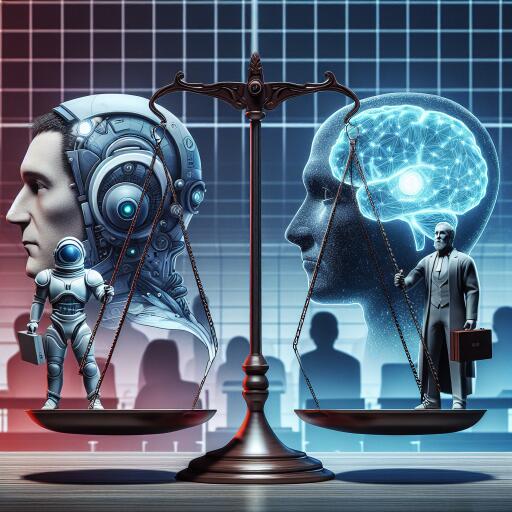Elon Musk May Be the Lesser of Two Evils in This Legal Battle With OpenAI
In a surprising twist within the tech industry, Elon Musk, one of the co-founders of OpenAI, has initiated legal proceedings against the artificial intelligence research company and its CEO, Sam Altman. The lawsuit alleges that OpenAI has strayed from its founding principles and agreements, setting the stage for a high-stakes conflict between two of the tech world’s most intriguing figures.
The genesis of OpenAI can be traced back to a partnership between Musk, Altman, and a group of engineers and scientists in 2015. Their mission was clear from the outset: to pursue the development of artificial intelligence in a manner that would ultimately benefit humanity. This noble aim was underscored by both Musk and Altman’s public declarations and the company’s charter, which advocated for the safe and beneficial evolution of AI technology.
Despite sharing a common goal, the methodologies and visions of Musk and Altman have raised eyebrows. Altman, under the banner of OpenAI, has zealously advanced towards the creation of AI capabilities akin to human intelligence. Conversely, Musk has explored the frontier of merging human consciousness with artificial intelligence through his endeavors at Neuralink, working on implantable brain-machine interfaces. Both leaders have candidly expressed their awareness of the potential threats AI poses, yet their ambitious pursuits of technological breakthroughs have not waned.
The crux of the legal challenge laid down by Musk centers on accusations of contract breaches and deviating from the foundational ethos of OpenAI. Highlighted within the lawsuit is the concern over artificial general intelligence (AGI), signifying AI that mimics human intellectual capabilities across a broad spectrum of activities. Musk’s lawsuit paints a picture of a burgeoning technology, potentially monopolized by profit-driven entities, veering dangerously away from the safeguarding of human interests.
Musk’s initiative to start OpenAI, along with Altman and others, was driven by a shared apprehension about the monopolization of AGI technology, particularly by corporate behemoths like Google. They envisaged a non-profit organization, unshackled by the pursuit of profits, openly sharing its research to democratize AI development. However, Musk alleges that OpenAI, under Altman’s stewardship, has diverged from this path, notably by partnering with Microsoft and transitioning towards a for-profit model while shrouding its advancements in secrecy.
At the heart of Musk’s legal battle is the argument for OpenAI to realign with its original, altruistic mission. The lawsuit seeks not only to redress the alleged contractual breaches but also to reclaim the spirit of openness and transparency in AI research and development. Musk contends that significant resources and efforts were invested into OpenAI based on the mutual understanding of these principles, principles which he now believes have been compromised.
While skepticism may surround Musk’s motivations, the lawsuit undeniably brings to light crucial discussions about the governance, openness, and ethical implications of AI development at a pivotal moment in its evolution. If Musk prevails, the case could institute precedents emphasizing accountability and transparency within the AI research community, potentially steering the trajectory of AI development towards a more human-centric approach.
The litigation between Musk and OpenAI encapsulates a broader debate on the future of artificial intelligence and its role in society. It underscores the complexity of navigating technological advancement while safeguarding human values and community welfare. As this legal drama unfolds, it offers a glimpse into the tensions that arise when the ideals of open innovation clash with the realities of proprietary technology and corporate interests, setting the stage for a seminal discourse on the stewardship of AI’s future.









